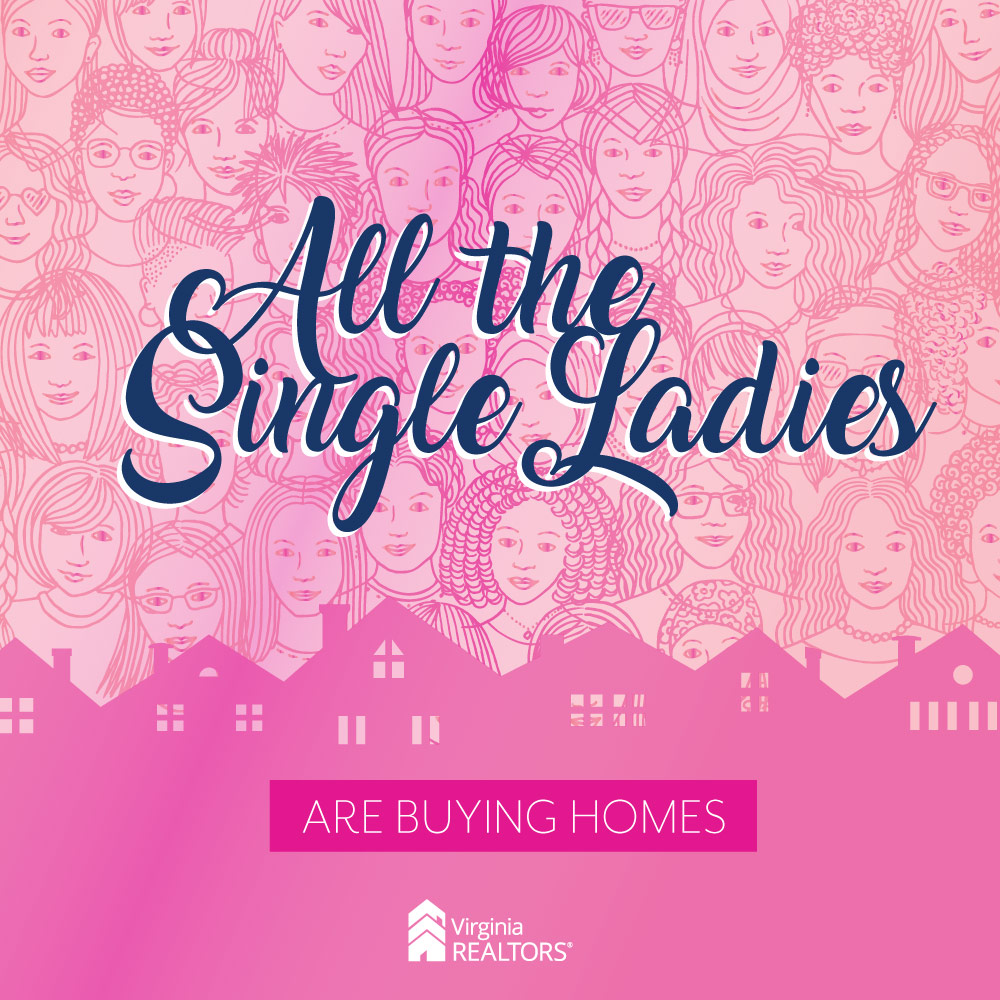All the Single Ladies… Are Buying Homes
January 31, 2020
Single, female homebuyers have been an important and growing segment of the housing market for the last few years. A recent analysis by LendingTree found that single women own more homes than single men do in the nation’s 50 largest metropolitan areas. The higher rates of homeownership among single women might be surprising given that women tend to earn less, on average, then men. However, there are several reasons why single women may be more likely to become homeowners than their single male counterparts:
- The National Association of Realtors® has found that females are more likely to rely on sources outside of their savings account for a down payment, including family members.
- Survey research suggests that women tend to value homeownership less as a financial investment, and more as a place to create a home.
- Single women are more likely to have children living with them than single men, and the presence of children is an important predictor of homeownership. Women also are more likely to be caregivers generally than are men, so planning for caring for an older parent could be another reason women look to become homeowners.
According to the LendingTree study, among the nation’s 50 largest metropolitan areas, the Richmond metro area has the 4th highest share of single female homeowners. In addition, the Richmond metro area has the largest gender gap in homeownership rates among single people. In the region, 16.0% of homes are owned by single women, while 8.9% of homes are owned by single men.
The Washington DC and Virginia Beach metro areas also have relatively high shares of single, female homebuyers. The gender gap in the Washington DC region is 4.7%, with 13.2% of all housing units in the region owned by single females, and 8.4% owned by single males. In the Virginia Beach metro area, 13.7% of all housing units are owned by single females and 9.7% are owned by single males, for a homeownership gap of 4.0% between single women and single men.
Single female buyers represent a sizeable share of the housing market, and it’s important for Virginia REALTORS® members to understand this demographic. All potential buyers are different, and it does not make sense to generalize based on a person’s sex or marital status. Recent data has shown that homes purchased by single female buyers appreciate less quickly than those bought by single male buyers, so talking about opportunities for home value appreciation early in the homebuying process could be beneficial.
You might also like…
5 Key Takeaways from the NAHREP 2023 State of Hispanic Homeownership Report
By Sejal Naik - April 17, 2024
In March 2024, the National Association of Hispanic Real Estate Professionals (NAHREP) released its 2023 State of Hispanic Homeownership Report. Using data from surveys conducted by various public… Read More
3 Multifamily Market Trends from the First Quarter
By Dominique Fair - April 16, 2024
For the last three years, the multifamily market has seen high demand, double digit rent growth, and increased construction to meet demand. These trends are expected to shift… Read More
Virginia’s Housing Market Sees Largest Influx of New Listings Since 2021
By Robin Spensieri - March 29, 2024
According to the February 2024 Virginia Home Sales Report released by Virginia REALTORS®, pace in Virginia’s housing market picked up last month. There were 6,733 homes sold statewide in February,… Read More